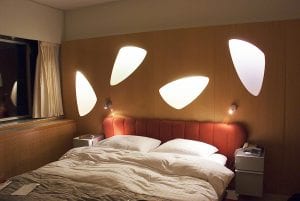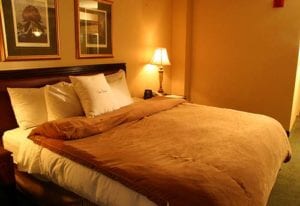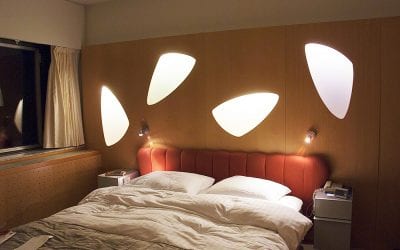To reduce hotel problems, I have 17 check-in errors and others during your stay.

In addition, in the more than two years since the COVID pandemic began, the hotels have altered their services and changed their rules. Hotel guests have been forced to accommodate themselves to the changes.
I’ve got 17 things you should never do to reduce hotel problems.
At check-in, ask about room location, fees, housekeeping, etc.
1. At check-in, forget to ask about room location if you’re a light sleeper:
Rooms near elevators, ice or snack rooms, etc., can be too noisy for light sleepers. So can rooms facing busy streets, as can rooms facing nearby construction sites. Request a room away from any of those problems.
2. Forget to ask about hotel fees:
Too many hotels have hidden fees that are never mentioned on their websites or at booking. Even if you stayed at your hotel recently, ask about fees to prevent billing surprises.
3. Assume that you know your hotel’s housekeeping policy:
If you want daily housekeeping or only clean towels and your trash removed regularly, find out at check-in what the hotel’s housekeeping policy is, so you can obtain the service that meets your needs.
4. Reduce hotel problems by never ssuming you know your hotel’s checkout time:
You can be charged an extra day in your bill if you don’t check out on time. Some hotels will give you extra time if you need it, particularly if you have status in their loyalty program. Be sure of your checkout time.
Never reveal your room number or name aloud. There’s always someone listening to take advantage of your information.

I can’t count the number of people I know who have had someone else’s meals, drinks, and other charges on their room bill after saying their name and room number aloud at check-in or at a hotel restaurant or bar. So, reduce your hotel problems by being discreet.
6. Forget to do a bedbug check immediately after entering your room:
Even the best hotels have had bedbug infestations from time to time. Look on the edging and seams of mattresses and box springs for evidence of bedbugs. Pull the top sheet down and look for small spots on them. Immediately get another room if there is bedbug evidence.
Reduce hotel problems. Clean frequent touch points in your hotel room.
7. Use the TV remote before you’ve disinfected it:
This has been a travel rule of thumb for decades. Studies of hotel room cleanliness tell us that TV remotes are usually filthy, covered with E.Coli, MSRA and Staph. Light switches and telephones are close behind. After your bedbug check, use alcohol disinfecting wipes to clean the remote, telephone and light switches.
8. Pack or unpack on your bed:
Think about where your bag has been, the floors, ground and other places your bag has been run through and stowed. Unless you thoroughly clean your bag and its wheels in your room, don’t put it on your bed to pack or unpack it. Clean it as soon as you get home.
9. Don’t block your hotel room door peephole when not in use:
While peepholes are designed with one-way viewing, it’s easy to reverse that, and some devices can peer through it without tampering with it. There are numerous cases where hotel guests have been victims of peephole tampering. I use a piece of duct tape to block peepholes in my rooms.
10. Use cloth or paper laundry bags or put your dirty clothes on the floor:
Studies have shown that bed bugs are more attracted to dirty laundry than clean clothes. Don’t put dirty clothes on the floor or keep them in cloth or paper laundry bags. I recommend a plastic compression bag which should be kept sealed during you hotel stay. If you don’t have a plastic bag that seals, at least use a plastic drawstring bag.
Safety, safety, safety. Be careful opening your door. Always lock the door when you leave. Lock valuables in the room safe.
11. Open your hotel room door before you know who’s there:
I don’t open the front door to my home unless I know who’s there, so I’m certainly not going to do it in a hotel. I use the peephole in the door and/or call down to the front desk first.
12. Leave your hotel room door ajar:
Many people leave their hotel room doors ajar if they want to go to the soda or snack machine or get ice. If so, you might return to your room to find it had been ransacked and valuables were stolen. Take your key and always close the door.
13. Leave valuables lying around in your room:
You don’t know who might enter your room while you’re out, even for a quick jaunt to the hotel bar or restaurant. Anything you don’t want to take with you, put in your room’s safe. If it doesn’t fit or you don’t have a safe, hide it, but not under the mattress. I have a small messenger bag when I travel. If the room doesn’t have a safe, I bring my valuables in the bag. I try to avoid hotels that don’t have room safes.
Extra Tip: If you don’t need a valuable, leave it at home. Never travel with something you can’t afford to lose or have stolen.

Don’t use the mini-bar to stow extra items that you bought to keep them cold, as it will likely shift items enough for you to be charged for consuming something that’s still in the mini-bar. Buy your own beverages and snacks at a store outside your hotel and you will save, as mini-bar prices are generally obscene. Just leave the mini-bar unused.
15. Get into a crowded elevator:
Frankly, the COVID pandemic, while seemingly winding down, is still with us. Reduce hotel problems by not tempting problems. With fall and winter coming to the northern hemisphere, we’re headed into a flu season that public health experts are expecting to be severe. Stay out of crowded elevators where others who are sick and infectious can infect you.
Be careful about incurring extra charges. Make sure your hotel bill is correct daily.
16. Smoke in a non-smoking room:
The charge for smoking in a non-smoking room can be $250–$300 or more. For non-smokers, this is a no-brainer to reduce hotel problems — warn smoking friends who enter.
17. Not check your hotel bill daily:
Inadvertent charges, billing mistakes, incorrect fees, etc., can be entered into anyone’s hotel room bill. Having these charges corrected or removed is far easier before you leave the hotel. I check my bill daily and definitely before I leave the hotel, as it’s almost always easier to obtain a correction while still at the hotel. Most hotels have guest bills available online.
Avoiding these seventeen items can save you angst and cash, as well as keep you healthy. They will take you little time and effort and can make a business or leisure trip easier. Plus, you will reduce hotel problems of all types.

READ ALSO:
Why passengers need common airline flight credit rules
COVID and Flu vaccinations keep you safer for fall and winter travel
After many years working in corporate America as a chemical engineer, executive and eventually CFO of a multinational manufacturer, Ned founded a tech consulting company and later restarted NSL Photography, his photography business. Before entering the corporate world, Ned worked as a Public Health Engineer for the Philadelphia Department of Public Health. As a well known corporate, travel and wildlife photographer, Ned travels the world writing about travel and photography, as well as running photography workshops, seminars and photowalks. Visit Ned’s Photography Blog and Galleries.



